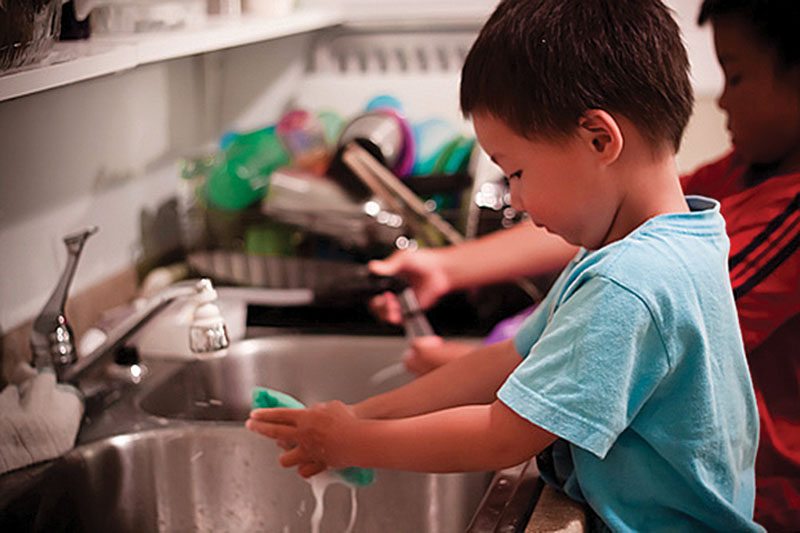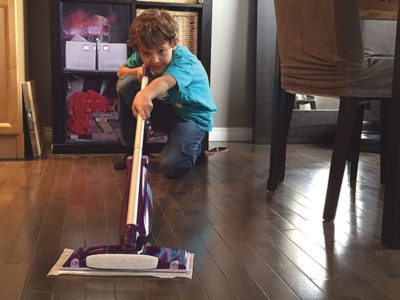 Research shows that children feel a greater sense of happiness when they contribute to the family. Children have a natural drive to be productive. Chores can help children gain an understanding that family members help one another and work collaboratively for the greater good. One study concluded that children who had chores to complete were more likely to become well-adjusted adults with strong relationships with family and friends. Growing up with chores led to successful careers.
Research shows that children feel a greater sense of happiness when they contribute to the family. Children have a natural drive to be productive. Chores can help children gain an understanding that family members help one another and work collaboratively for the greater good. One study concluded that children who had chores to complete were more likely to become well-adjusted adults with strong relationships with family and friends. Growing up with chores led to successful careers.
Some experts point to a trend of expecting less of children than parents in past generations did. One possible reason is the higher school demands and involvement in more extracurricular activities. Thus parents are concerned about adding other responsibility and stress on their children. Many young adults go to college without knowing how to cook, do laundry, or advocate for themselves, for their parents had done those tasks for them. The supervision required when children are made responsible for the chore can make the task longer, so parents feel it is easier to complete the chore instead of assigning it to a child. With that said, chores may be worth the effort to help children require life skills. Children gain a sense of responsibility when they contribute to the household.
 Make It Fun
Make It Fun
Let children choose the music they prefer while completing chores. Encourage dancing and singing while working. Make a game out of the chore. Play pretend and have the children act out their favorite characters while completing the task. Let them choose cleaning tools.
Offer Choices
If your child prefers the predictability and security achieved from mastering a task, give that child that charge. If your child gets bored easily, change the assigned chores. Leave the choice to your child.
Praise
Acknowledge the tasks your children complete. Remind them that what they are doing is important and helps the entire family. This can help children feel important and needed. Speak positively about how the family working together makes a great team.
Manage Expectations
As children learn how to independently complete chores, the likelihood is that they will not do them as you might desire. Demonstrate patience if they need repeated instruction or reminders. Support them and do chores together. This also provides bonding time. It can offer a time and the opportunity to teach teamwork. Be specific about what the chore entails and take time to model.
 When/Then Statements
When/Then Statements
Tell your child that WHEN he hangs up his coat, THEN he can watch his favorite show. WHEN she puts his dishes in the sink, THEN she can go outside and play. This can help incentivize them into doing the task and eventually lead to it becoming a habit.
The Allowance Controversy
Some argue that giving an allowance for chores helps children learn about money management. The belief that allowance should be offered for special projects and chores, not the day to day ones, teaches children about the link between work and financial reward. This can foster a strong work ethic. Others argue that tying chores to an allowance can make children feel motivated by money and not by the desire to help or to be a contributing member of the family. Determine what aligns with your value system and which works best for your family.
Graziella Simonetti is a parent educator for EAC Network’s Long Island Parenting Institute and works as an early childhood social worker for the New York City Department of Education. She holds an advanced certificate in parent education from Adelphi University and is a NYSPEP credentialed parenting educator. Simonetti is a former kindergarten teacher.


















